A measured win in Riga
Eighteen out of eighteen. Serbia’s perfect night at the free-throw line, against a host crowd in Riga, told you a lot about their composure in a game that never felt flashy but rarely slipped from their hands. Latvia were nearly flawless too at the stripe (22/23), which is why this felt tight for long stretches. Yet from the middle of the first quarter onward, Serbia looked like the steadier team, stacking stops, managing tempo, and making every small possession count.
Head coach Svetislav Pešić called it what it was: a difficult game with high concentration from both sides. He praised his players for their focus and body language—calm, economical, and locked in when it mattered. You could see the plan in the small things: controlled pace after makes, careful spacing to avoid cheap turnovers, and smart fouls to tame Latvia’s rhythm. In a building that was loud from warmups to the horn, Serbia played the percentages and won them.
The free throws weren’t a footnote; they were a mirror of the mindset. Serbia didn’t rush shots, hunted better looks, and paid off their patience at the line. Latvia matched them stride for stride for most of the night, but Serbia’s poise carried late. Three straight wins now, and with that, an early ticket punched for the final stage in Riga. No confetti yet, but a clear sign this team understands tournament basketball: survive, advance, and stay healthy.
Pešić didn’t celebrate it as if it were anything more. He reminded everyone this isn’t the last dance—just a step. The message in and around the locker room was the same: keep the legs fresh, defend without fouling, and cut out the mental noise. That last part became very real minutes later.
Press room flashpoint and a coach drawing lines
The drama didn’t come on the court. It came when a journalist asked about alleged heated words involving Ognjen Dobrić and Latvia’s Luca Banchi—Dobrić’s former coach at Virtus Bologna. Pešić cut the exchange short, made it clear he wouldn’t entertain that line of questioning, and told the room to stick to basketball. It was abrupt, unmistakable, and vintage Pešić: protect the group, shut down distractions, move on.
Dobrić himself brushed off the suggestion when asked, and there’s no sign it affected anything on the floor. Latvia’s coach Banchi, a meticulous tactician, kept his team in it with sharp sets out of timeouts, but Serbia met those with disciplined defense and clean execution. That’s the part Pešić seemed intent on highlighting—what happened between the lines, not between individuals from past teams.
Was the exchange tense? Sure. But it also fit the larger theme of Serbia’s night: containment. Contain Latvia’s spurts, contain the emotions of back-to-back games, contain the swirl of storylines around familiar faces. Pešić’s stance wasn’t subtle, but it was consistent with a coach who believes that anything not helping the next possession is a distraction.
That focus showed up even before tipoff. With less than 24 hours since the win over Portugal, Pešić scrapped a regular on-court practice and shifted the team into analysis mode. Film over sweat. Walk-throughs over full-tilt drills. It was a switch designed to save legs in a tournament that can chew up teams that burn energy the wrong way. Against a host nation with momentum, Serbia arrived prepared and not overcooked.
He also put a clear asterisk on the night: player health. Pešić flagged concern over Bogdan Bogdanović’s condition, something Serbia will monitor closely as the level rises. Bogdanović has been the team’s compass for years—shot creation, decision-making, late-clock steadiness—and his availability shapes what Serbia can run, especially in tight fourth quarters. Expect careful minute management and plenty of staggered lineups to keep him sharp without overtaxing him.
There’s a bigger picture at play, and the coach said it out loud: this one win doesn’t crown anything. Knockout basketball punishes lapses, and the final stage in Riga won’t leave room for sluggish starts or foul trouble. Serbia’s identity—defensive discipline, crisp spacing, and an ability to grind out trips to the line—translates when the margins shrink. The goal now is to carry the same poise into games where one bad three-minute stretch can end a run.
Latvia, for their part, pushed with pace and spacing that had the arena buzzing. They drew fouls, they held their nerve, and they forced Serbia to win this with patience instead of fireworks. That’s not a bad preview of what awaits in the later rounds: veteran coaches trading counters, and games decided by five or six possessions that don’t show up in highlight packages—extra passes, late closeouts, box-outs on long rebounds.
Pešić’s post-game message landed on a simple theme: control what you can. That includes the scoreboard, the tempo, and—if he can help it—the narrative. He doesn’t want side stories pulling oxygen from the room. Whether you liked his tone or not, it aligns with the way Serbia are playing: restrained, methodical, and increasingly sure of themselves.
Three wins in three outings and a place booked for the business end in Riga is a solid return for a team managing a demanding schedule. They’ve handled the back-to-back, absorbed the noise, and banked confidence without acting like they’ve cracked the code. The team that got every free throw to drop tonight understands something basic about EuroBasket: you don’t have to be spectacular; you have to be relentless, precise, and healthy when the bracket tightens.
The road from here gets steeper, and Serbia know it. The plan is written in their actions—rest smart, study hard, defend first. If they keep that balance, they’ll give themselves a chance to control their destiny, just like their coach keeps saying.
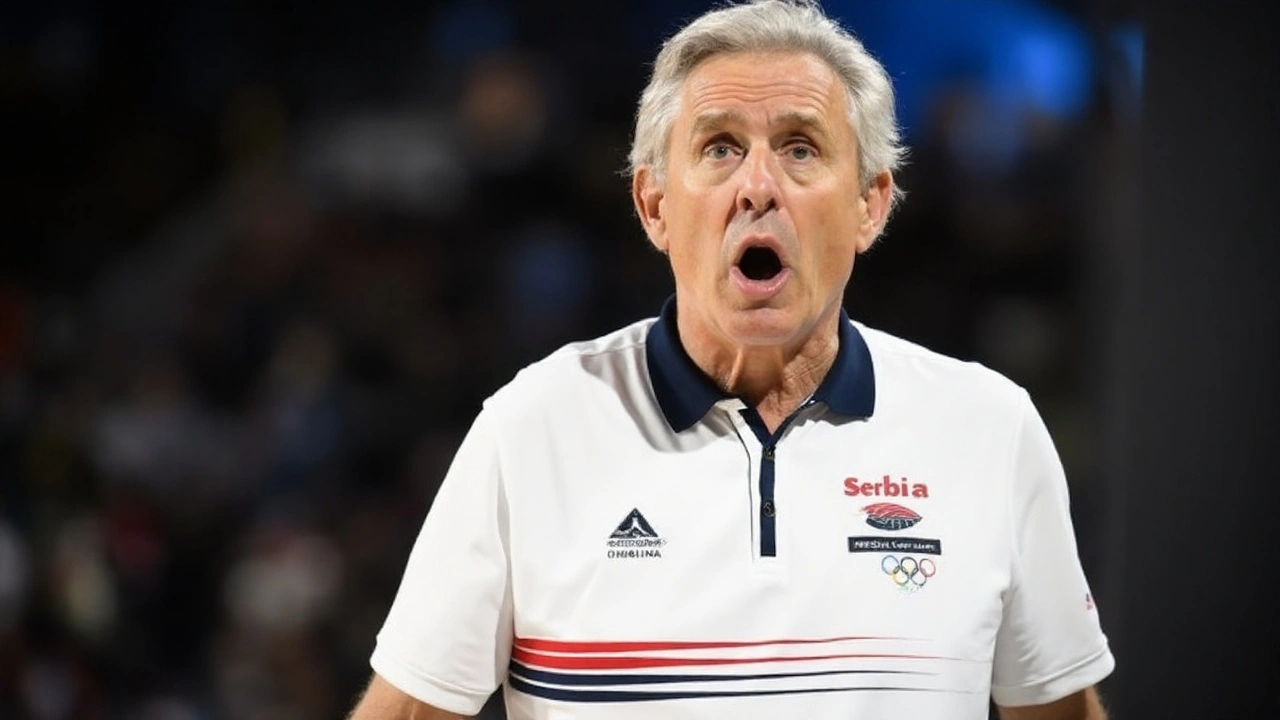
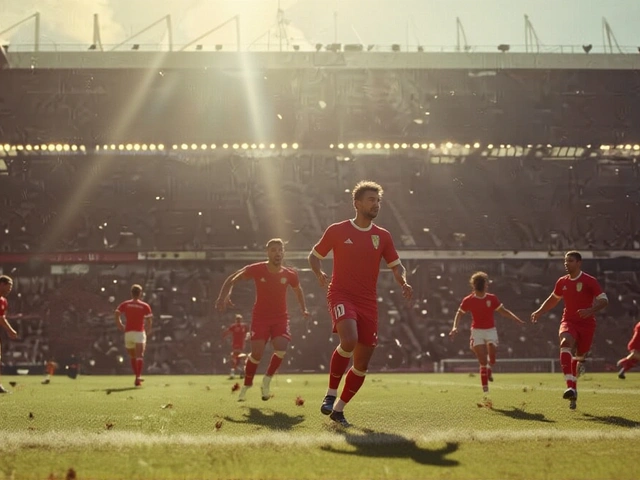
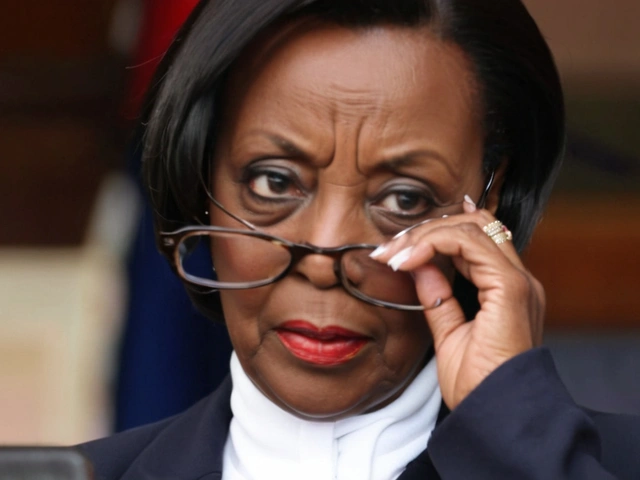
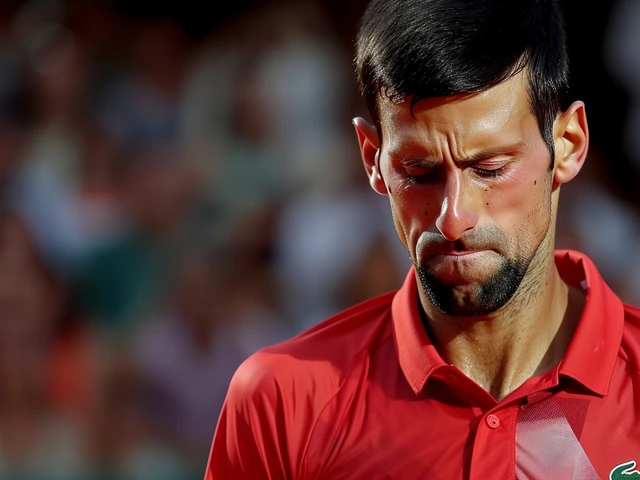
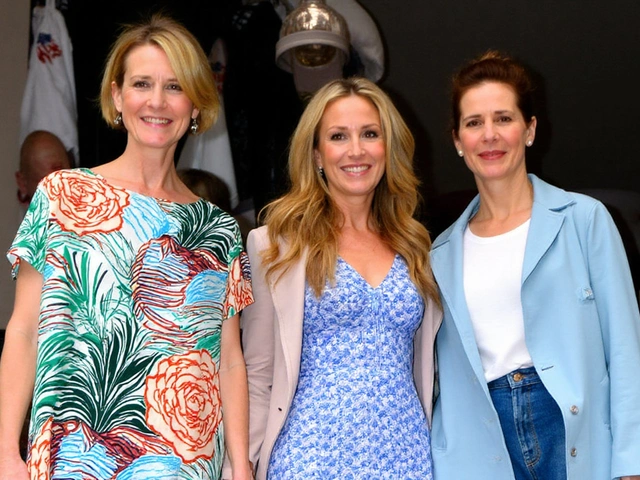

15 Comments
Stephanie Reed
September 8, 2025 AT 21:19 PMSerbia’s poise is just next-level. No flashy plays, no ego, just clean execution. This is how you win tournaments.
Brian Gallagher
September 10, 2025 AT 07:06 AMThe strategic restraint displayed by Pešić is a masterclass in high-stakes basketball management. The shift from physical prep to film analysis under temporal duress reflects an advanced understanding of athlete load management and cognitive preservation-critical variables in multi-game tournaments with compressed timelines.
musa dogan
September 11, 2025 AT 07:58 AMLet’s be real-this wasn’t basketball. This was a cold-blooded chess match with sneakers. Latvia threw everything: noise, hustle, soul. Serbia? They just stared back like a monk who’s seen 300 lifetimes and still didn’t blink. That’s not coaching. That’s sorcery.
Joshua Gucilatar
September 13, 2025 AT 02:40 AMActually, the stat that matters isn't the 18/18 free throws-it's the fact that Serbia only committed 12 fouls against a team that shot 22/23. That’s elite defensive discipline. Most teams would’ve panicked and started hacking. Serbia? They just adjusted spacing and waited. That’s not luck. That’s IQ.
Jason Lo
September 13, 2025 AT 20:15 PMYou call that poise? I call it fear. They’re scared to let loose. No passion, no heart-just cold calculation. Real champions play with fire, not spreadsheets.
Ronda Onstad
September 15, 2025 AT 08:10 AMI get why people think Serbia’s boring, but honestly? That’s the point. They’re not here to entertain. They’re here to win. I’ve watched teams with flash collapse in the quarters because they burned out early. Serbia’s playing the long game. Rest, film, adjust. No drama. Just results. That’s leadership.
Harry Adams
September 15, 2025 AT 08:35 AMThe whole ‘avoid distractions’ narrative is just a smokescreen. Pešić shut down the question because he knows Dobrić’s history with Banchi could’ve exposed internal fractures. This team’s not as unified as he pretends. The silence speaks louder than the free throws.
Jess Bryan
September 15, 2025 AT 19:52 PMYou really think this was just about basketball? Think again. The timing of the press question-right after Portugal, right before the final stage-is too convenient. Someone planted that. The media’s being manipulated to distract from Serbia’s real weakness: depth. Bogdanović’s injury isn’t a concern-it’s a ticking bomb.
Mark Dodak
September 16, 2025 AT 13:09 PMI’ve been watching international basketball for over a decade, and this Serbia team reminds me of the 2014 Spain squad-same calm, same efficiency. They don’t need to dominate. They just need to not lose. Every possession is treated like a final exam. That’s why they’re dangerous. Not because they’re flashy, but because they never make the mistake you expect them to. It’s beautiful in its simplicity.
Kieran Scott
September 17, 2025 AT 11:58 AMLet’s not romanticize mediocrity. Serbia won because Latvia choked on their own hype. The home crowd noise? Useless. The free throws? Luck. The ‘poise’? A cover for a lack of offensive creativity. They scored 68 points. SIXTY-EIGHT. Against a team that barely plays defense. That’s not championship basketball. That’s survival. And if Bogdanović goes down, this whole house of cards collapses.
Elizabeth Alfonso Prieto
September 18, 2025 AT 16:19 PMI can't believe you guys are praising this. Where's the heart? Where's the passion? This team plays like robots programmed by a spreadsheet. And Pešić shutting down a question? That's censorship. What are they hiding? I bet Bogdanović is faking the injury so they can rest him. It's all a scam.
Derrek Wortham
September 19, 2025 AT 01:30 AMPešić’s response was ridiculous. You don’t just shut down a journalist like that. That’s not leadership-that’s insecurity.
jesse pinlac
September 20, 2025 AT 23:57 PMThe notion that Serbia’s approach is ‘methodical’ is a delusion propagated by media sycophants. This is the same team that lost to Slovenia by 22 points last year. They’re not evolving-they’re coasting on reputation. Pešić’s ‘focus’ is just a euphemism for fear of risk. And when the real pressure hits? They’ll fold like a cheap tent.
Derek Pholms
September 22, 2025 AT 12:31 PMThere’s a quiet philosophy here, isn’t there? Not the loud kind that shouts from rooftops. The kind that says: if you can control your breath, you can control the game. Serbia doesn’t need to be the loudest. They just need to be the last one standing. And in a world that worships spectacle, that’s the most radical thing of all. They’re not playing to win-they’re playing to outlast the noise. And maybe that’s the only way to win when the world’s screaming.
Steven Rodriguez
September 23, 2025 AT 21:19 PMLet me tell you something-this isn’t just basketball. This is American-style discipline fused with European brains. You think this is luck? No. This is the result of decades of structure, of kids being taught to value position over personality. Latvia had heart. Serbia had a system. And in the end, systems beat feelings every time. This is the future of the game. No more ‘superstars.’ Just precision. And if you don’t like it? Too bad. The game moved on without you.